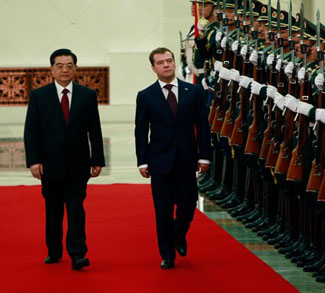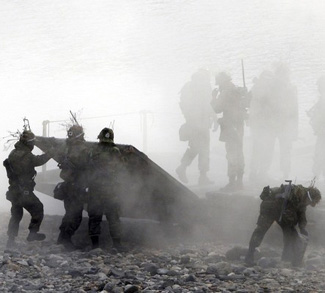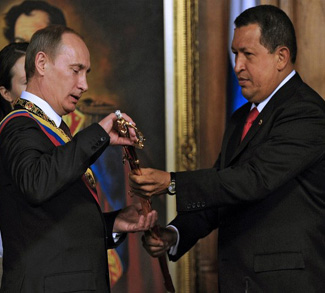On the surface, the energy deals signed between China and Russia suggest that economic interdependence will create an unwavering solidarity moving forward. The reality of the situation however is far more complicated.
The energy agreements signed between Russia and China in Beijing reflect a deepening energy relationship between the two neighbors and BRIC members. The deals will increase Russian crude-oil and gas supplies as well as deepen cooperation in electrical power, energy saving, renewable energy, and nuclear power. President Medvedev and Hu Jintao also hailed the completion of a 927 km oil pipeline that links Skovorodino in eastern Russia to the Chinese petrochemical hub of Daqing. The pipeline is the first to be completed between the world’s largest energy supplier and the world’s largest consumer, and it should carry around 300,000 barrels of oil a day into China over the next 20 years.
It is certainly true that Chinese and Russian interests overlap in several spheres of international security. One such area is their combined interest in selectively banding together to oppose the United States when it is deemed mutually beneficial to do so. Another example of overlap is the realm of political security, where both countries are eager to support one another in opposing separatist movements within their borders and staunchly advocating state sovereignty and non-interference by outside actors. When one combines these factors with the mutual benefit of energy cooperation, it seems like China and Russia make for natural allies in a post-US hegemonic order. This however is not the case.
First off, the energy relationship between the two states has a built-in dependency; one that both parties are keenly aware of. Beijing does not want to find itself too dependent on any one source of energy imports, especially those from another regional power that could one day be in direct competition with China. However, these worries tend to take a back seat to the CCP’s acute need for continued domestic economic growth to drive the party’s political legitimacy. In other words, China will take all of the Russian energy it can get, but not without the knowledge that by doing so it is sacrificing its own strategic space in Asia and beyond.
Russia on the other hand is coming from a much stronger negotiating position. Owing to its vast energy reserves, it has what the whole world wants, and China is just one spoke in the wheel. The Skovorodino-Daqing pipeline is tantamount to Moscow hedging its bets and lessening dependence on European markets. Beyond Skovorodino-Daqing, Russia will be sure to move slowly on building any additional Russia-China pipelines. Moscow is in the position to take its time until it gets the price that it wants. This is the reason that 2006 talks on the construction of two additional gas pipelines remain stalled over questions of how much Moscow will charge for the gas it exports.
The dynamics of Sino-Russian relations are changing. Gone are the days of viewing the relationship strictly through the lens of potential balancing against US hegemony, and leaders in both Moscow and Beijing are now looking ahead to a multipolar world where they will be vying for power and influence in the same regional space.




